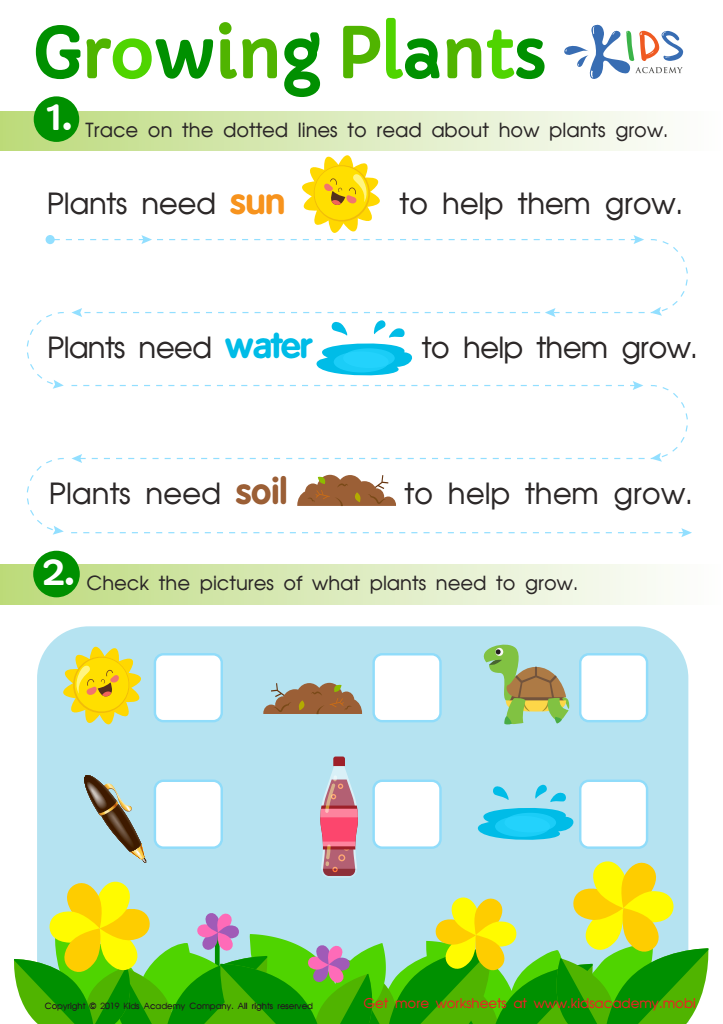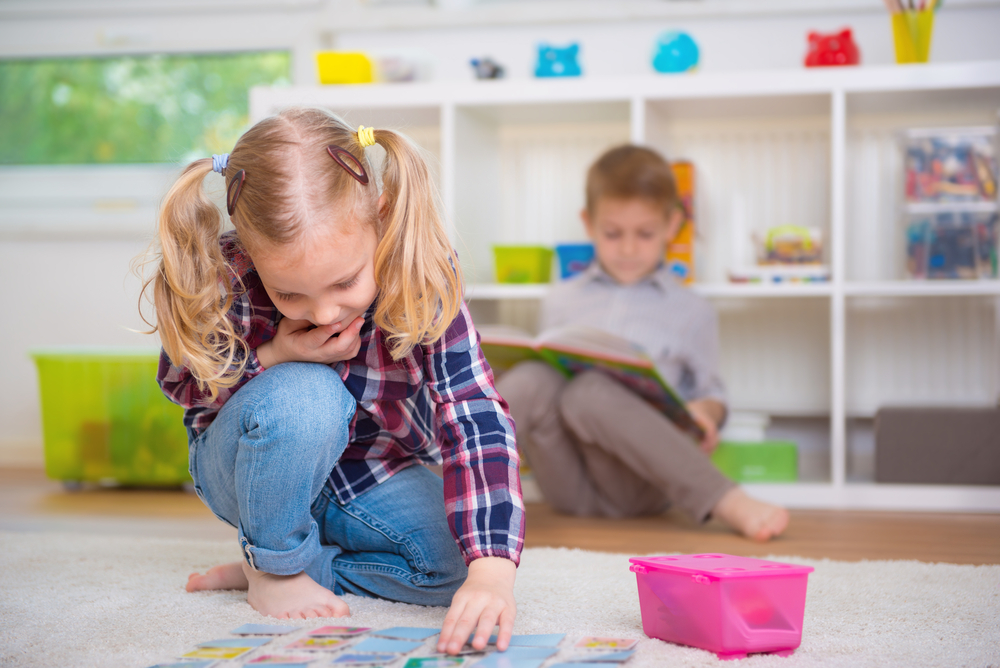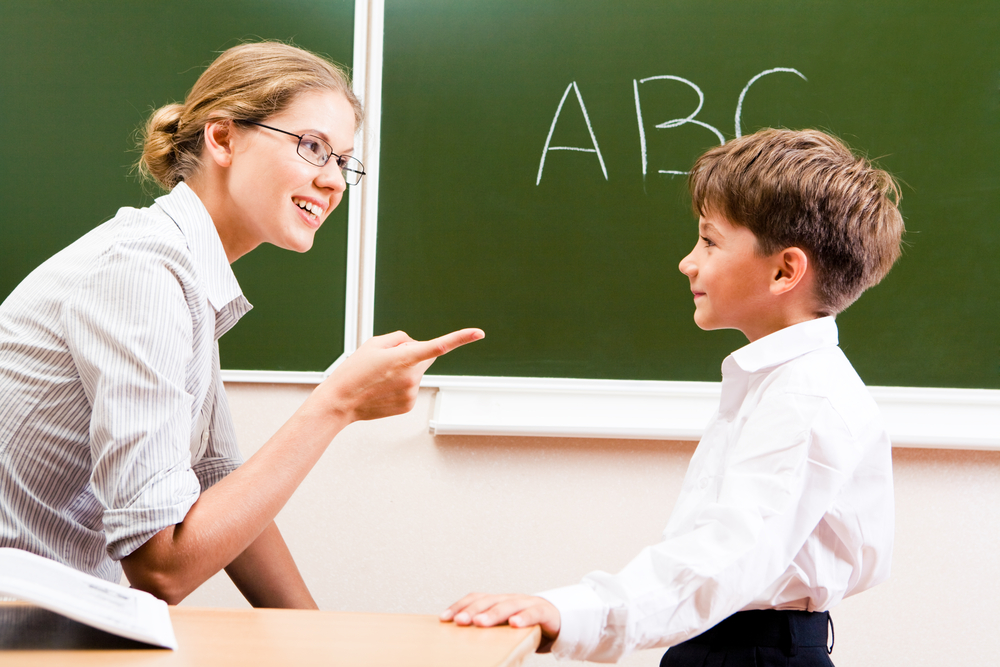Learning gardening basics Worksheets for Kids
1 filtered results
-
From - To


Growing Plants Worksheet
Question/Answer
How to test a Kindergarten student’s Learning gardening basics skills?
To test a Kindergarten student’s learning in gardening basics, engage them in hands-on activities such as identifying common plants, demonstrating the process of planting seeds, and showing basic watering techniques. Observe their ability to follow simple gardening instructions, recognize basic gardening tools, and express understanding of the importance of sunlight and water for plant growth.
How does the mastery of the Learning gardening basics skill affect a student's performance at an early age?
Mastery of gardening basics at an early age positively impacts student performance by enhancing their understanding of biology, ecology, and environmental science. It also improves physical health, patience, responsibility, and teamwork skills. These benefits contribute to better overall academic performance and social development, fostering a well-rounded educational experience through practical, hands-on learning.
How to train the Learning gardening basics skill in Kindergarten students learning about Reading Non-Fiction?
To train the "Learning Gardening Basics" skill in Kindergarten students during Reading Non-Fiction, introduce age-appropriate, illustrated gardening books. Engage students with simple, repetitive texts that explain basic gardening concepts. Incorporate interactive activities such as identifying plant parts, sorting seeds, and story sequencing. Encourage discussions about the gardening process, emphasizing key vocabulary from the texts.
 Assign to the classroom
Assign to the classroom

.jpg)
.jpg)









